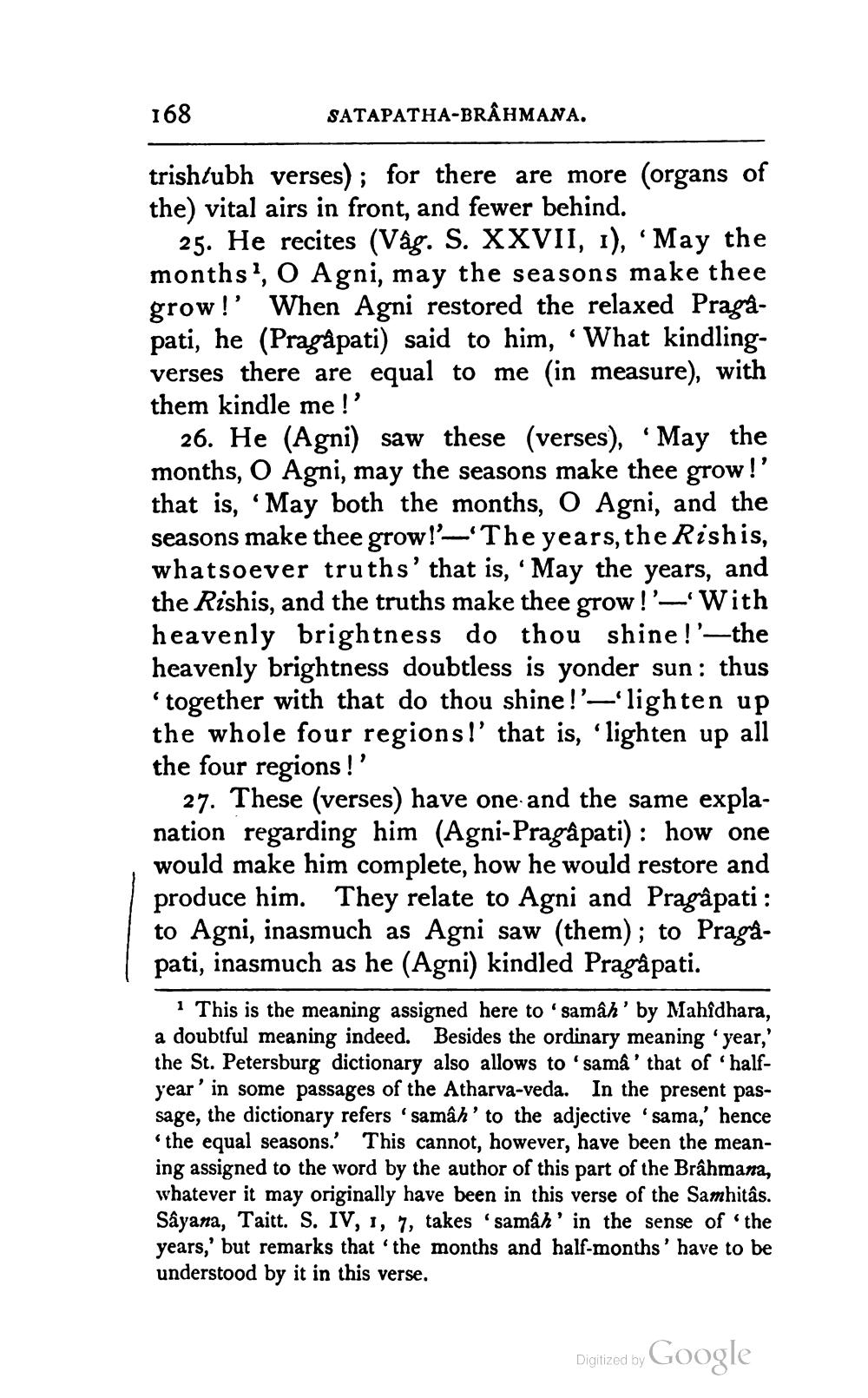________________
168
SATAPATHA-BRÂHMANA.
trishtubh verses); for there are more (organs of the) vital airs in front, and fewer behind.
25. He recites (Vâg. S. XXVII, 1), ‘May the months?, O Agni, may the seasons make thee grow!' When Agni restored the relaxed Pragapati, he (Pragàpati) said to him, “What kindlingverses there are equal to me (in measure), with them kindle me!'
26. He (Agni) saw these (verses), "May the months, O Agni, may the seasons make thee grow!' that is, ‘May both the months, O Agni, and the seasons make thee grow!'—'The years, the Rishis, whatsoever truths' that is, 'May the years, and the Rishis, and the truths make thee grow!'-'With heavenly brightness do thou shine!'—the heavenly brightness doubtless is yonder sun: thus 'together with that do thou shine!'—'lighten up the whole four regions!' that is, 'lighten up all the four regions!'
27. These (verses) have one and the same explanation regarding him (Agni-Pragâpati): how one would make him complete, how he would restore and produce him. They relate to Agni and Pragâpati : to Agni, inasmuch as Agni saw (them); to Pragapati, inasmuch as he (Agni) kindled Pragàpati.
1 This is the meaning assigned here to 'samâh' by Mahîdhara, a doubtful meaning indeed. Besides the ordinary meaning 'year,' the St. Petersburg dictionary also allows to 'samâ' that of 'halfyear' in some passages of the Atharva-veda. In the present passage, the dictionary refers 'samâh' to the adjective 'sama,' hence 'the equal seasons.' This cannot, however, have been the meaning assigned to the word by the author of this part of the Brâhmana, whatever it may originally have been in this verse of the Samhitâs. Sâyana, Taitt. S. IV, 1, 7, takes samah' in the sense of the years,' but remarks that the months and half-months' have to be understood by it in this verse.
Digitized by Google




